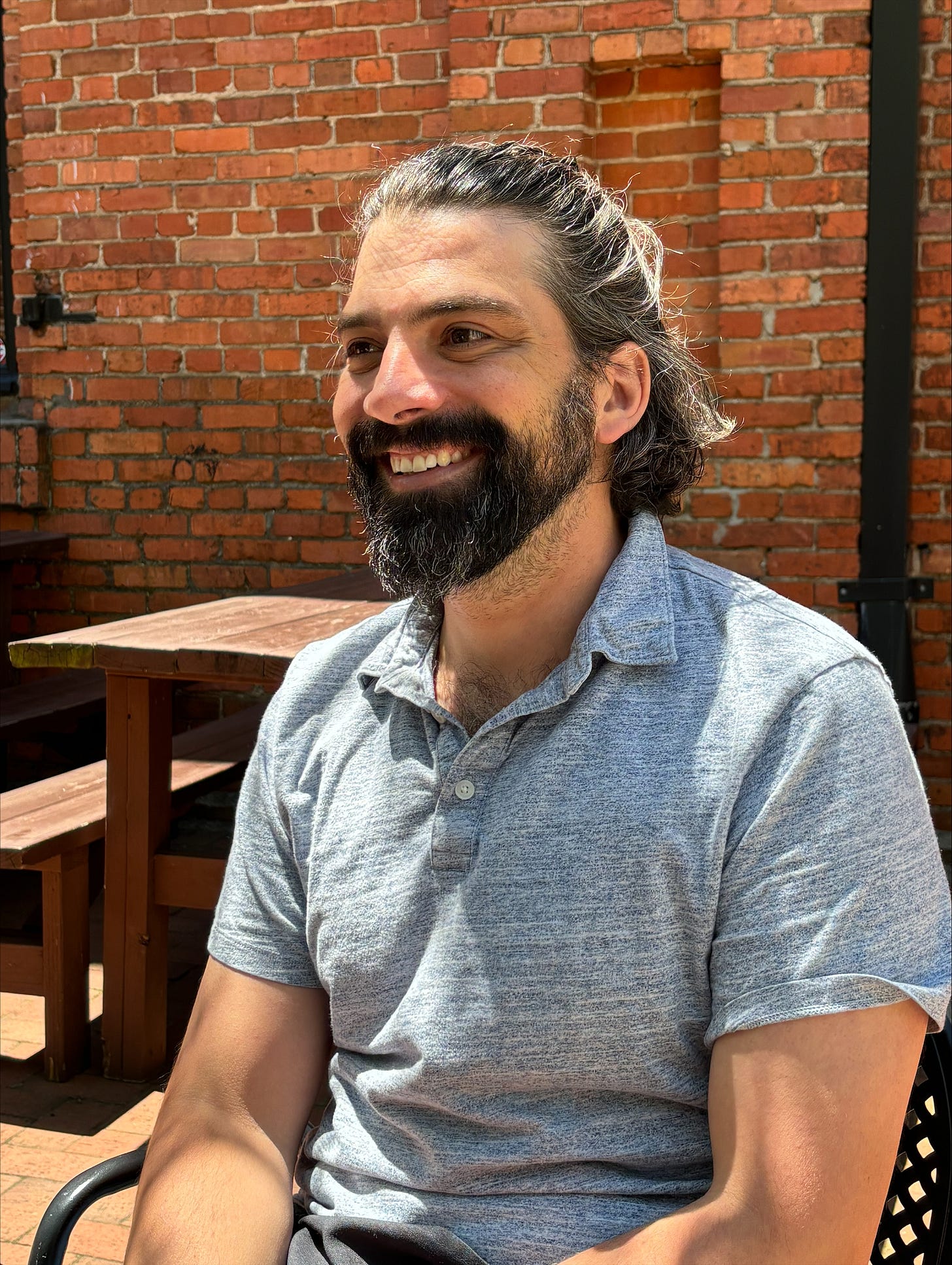What We Remember and What We Forget When We Forgive
Felipe De Brigard and Gabriela Fernández-Miranda (Duke University)
On March 10th 2000, sixty paramilitaries marched through Tamarindo, a hill near Las Brisas, a rural pathway of the township of San Juan Nepomuceno - a small village of barely thirty thousand people smack in the middle of the beautifully monotonous tropical dry forest of Montes de María, in the north of Colombia. That night, they were joined by a second group of about 150 paramilitaries, this time from the feared “Bloque Norte”, a sinister contingent commanded by Úber Banquez Martínez, better known by his alias “Juancho Dique”. The paramilitaries were expecting to find an encampment with a few dozen guerrilla members and had orders to completely decimate them. But when they arrived, no one was home.
Frustrated, at 5:30am the following day, they entered Las Brisas where they captured eleven civilians, tortured, and murdered them. They claimed the civilians were aiding the guerrillas. A decade later, the truth commission revealed that the massacred were innocent farmers that had no association whatsoever with the conflict. The massacre of Las Brisas, as it is now known, left a community shaken and caused immeasurable pain to the victims and loved ones that survived.
Rafael—or “Rafa”—Posso is one such victim. His uncle and two of his cousins who, in his own words, “were practically his siblings”, were among the tortured and killed. It was Rafa who had to go and find their bodies, and it was on the back of his mules that the bodies were transported to town. For years, Rafa harbored feelings of revenge and hate against their killers. Constantly reflecting on that horrific day, he couldn’t help but relieve the anger, the pain, and the rage. Years later, in December of 2019, during the “Festival of Reconciliation” in San Onofre, just a few kilometers south of Las Brisas, Juancho Dique publicly apologized for his crimes and asked the community for forgiveness. Rafa, who was there, approached the stage and gave a long and genuine hug to the person that ordered the killing of his family members. He told him, and he told his community, that he forgave him.
Today, Rafa insists that his memory of the massacre hasn’t changed at all; that he can still remember the burned, tortured, and beheaded bodies of his cousins as vividly as he always has. Nevertheless, he also tells us that now the memory does not bring rage to his heart; that it does not elicit feelings of revenge or hatred. “We forgive, but we don’t forget,” he tells us, echoing the motto frequently repeated by victims of the Colombian conflict. But if we take Rafa at his word, and believe that he really has not forgotten these terrible experiences, how come remembering them today does not elicit the same feelings and the same thoughts they used to bring about before he forgave Juancho Dique?
How does forgiveness affect our memory of past wrongdoings?
To try to answer this question, our team for the Memory and Forgiveness project has been documenting and empirically exploring the recollective experience of dozens of direct victims of the armed conflict in Montes de María. One of the main objectives of the project is to carefully investigate whether a victim that forgives the perpetrator of a violent act experiences their recollection differently from someone who does not forgive, and, if so, what would explain the nature of this difference.
This research project, which combines philosophy, moral psychology and memory research, takes inspiration from an idea long popular amongst moral philosophers: namely that the process of forgiveness essentially involves an emotional change. These emotional accounts of forgiveness are often traced back to Bishop Joseph Butler who famously, in 1726, argued in his “Sermons on Forgiveness and Resentment” that to forgive requires the forswearing or overcoming of feelings of resentment.
But if forgiveness requires an emotional change, what are the cognitive mechanisms underlying such a process?
Our proposal is that memory mechanisms may help to explain the emotional change that characterizes forgiveness. Motivated by the empirical observations that memory contents are multidimensional and that forgetting affects different mnemonic contents in different ways, we initially started our empirical project by testing two possible accounts as to how forgiveness may differentially affect the emotional content of autobiographical memories of past wrongdoings.
On the one hand, there is the episodic fading account, according to which unforgiven wrongs are frequently and actively remembered, which in turn prevents the remembered episodic details from fading away and losing their vivacity (Boleyn-Fitzgerald, 2002; Blustein, 2014). When we forgive, however, the frequency with which we ruminate on and remember the past event is reduced, which in turn leads to the fading of its episodic details. As the memory becomes less vivid and less detailed, so does the valence, which depends on the intensity of the mnemonic content. According to the episodic fading account, then, both the episodic and the affective details of remembered wrongdoings should be experienced less intensely when one has forgiven the perpetrator relative to when one has not (Figure 1A).
By contrast, the emotional fading account holds that forgiveness affects the memory of past wrongdoings more selectively, by modifying only the affective components of the mnemonic content. There are a number of possible ways in which this selective change can happen. One possibility, suggested by the work of philosopher Santiago Amaya (2019), is that forgiveness may help us to emotionally reappraise the original memory at the time of retrieval so that the memory is then re-consolidated with less intensity and less negative affect. Another possibility is that forgiveness facilitates the so-called “fading affect bias”, whereby negative memories tend to be experienced less negatively over time. Regardless of the precise mechanisms—whose nature we hope our research project can shed some light on—the emotional fading account predicts that forgiveness must only affect the affective details of a remembered wrongdoing, while making no difference to the experience of episodic details (Figure 1B).

Our first series of studies (Fernández-Miranda et al, in review), which constituted the pilot data that helped to support the Templeton grant funding our project, lends strong support to the emotional fading over the episodic fading account. With close to 1,500 participants, we found that forgiving the perpetrator of a wrongdoing makes no difference in how detailed and vivid the memory of that event is experienced, as compared to memories of past wrongdoings in which the perpetrator is not forgiven.
However, when it comes to the emotional aspects of the memory at retrieval, we found that forgiving the perpetrator of a past wrongdoing predicts much lower rates of emotional tone, valence, and intensity of recollection. Moreover, we also found that these emotional components of the remembered wrongdoings predicted people’s reactive attitudes toward the perpetrators—particularly their feelings of revenge, benevolence, and avoidance—whereas the episodic components were unrelated.
Taken together, the results of these first studies suggest that forgiveness need not be associated with the forgetting—or, at least, the fading away—of the episodic information associated with the remembered event, but rather with the emotional mollification of its affective aspects.
If forgetting is understood as the loss of episodic information, then our results in an important sense support the Colombian victim’s motto: one can forgive without forgetting.
Of course, these first findings only begin to scratch the surface of what is a much larger and complex phenomenon. Importantly, the studies were conducted with online samples from Western Educated Industrialized Rich Democratic (WEIRD) populations (Henrich, 2010), which limits the generalizability of our results. We hope that our studies with diverse populations in Colombia, as well as in the US, can help to begin to address this limitation.
In contexts of post-conflict, like the one in Colombia, remembering the war crimes is as important as overcoming the negative emotions and the feelings of revenge. However, the role of forgiveness in these contexts is contested, especially when it is perceived to involve forgetting. Our pilot evidence suggests that forgiveness involves a shift in the emotional aspects of memories while preserving the episodic content. We expect to find evidence consistent with these findings in our Colombian sample from Montes de María, and by using diverse research methods that will enhance our confidence in the results.
We hope this research will be useful to inform interventions focused on individual processes of interpersonal forgiveness. Moreover, beyond interpersonal contexts, it will contribute to our understanding of forgiveness's role in transitional justice and could even inform new strategies to promote better mental health for victims of political violence.
Finally, and more concretely, we also hope that the knowledge we acquire through our work can contribute to the mental health of the victims of political violence in Colombia as well as to the process of reconciliation currently taking place in Montes de Maria.


References
Amaya, S. (2019). Forgiving as emotional distancing. Social Philosophy and Policy, 36(1), 6-26.
Blustein, J. (2014). Forgiveness and remembrance: Remembering wrongdoing in personal and public life. Oxford University Press, USA.
Boleyn-Fitzgerald, P. (2002). What Should “Forgiveness” Mean? The Journal of Value Inquiry, 36, 483–498.
Fernández-Miranda, G., Stanley, M., Murray, S., Faul, L., & De Brigard, F. (in review). The emotional impact of forgiveness on autobiographical memories of past wrongdoings.
Henrich, J., Heine, S. J., & Norenzayan, A. (2010). The weirdest people in the world? Behavioral and Brain Sciences, 33(2–3), 61–83.




